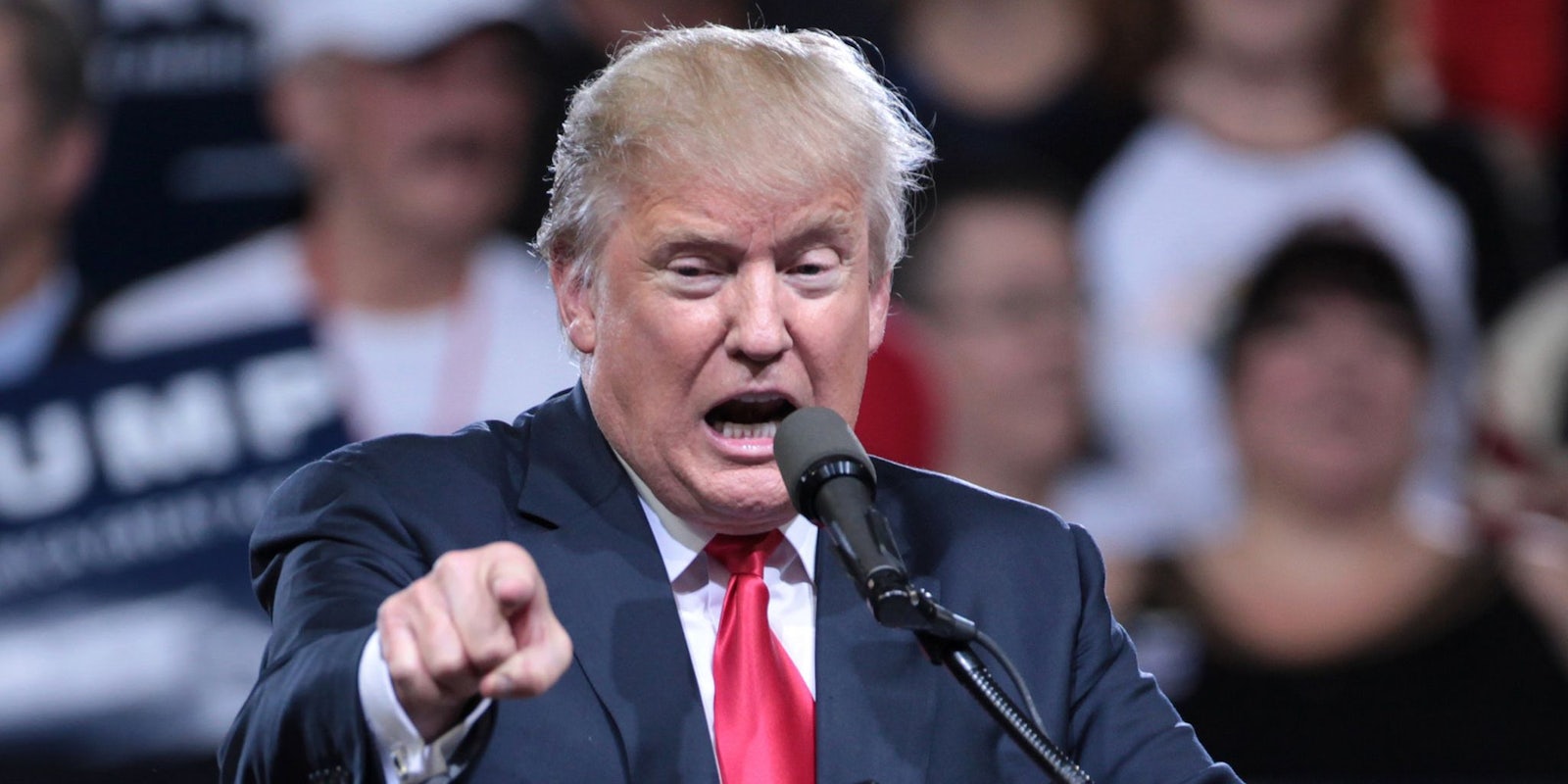Opinion
The Trump administration announced on Friday that it would be imposing sanctions on Iran for its recent missile test. In his now characteristic fashion, President Donald Trump reinforced this announcement with a tweet, saying: “Iran is playing with fire—they don’t appreciate how ‘kind’ President Obama was to them. Not me!” During the campaign, Trump accused the Obama administration of being insufficiently tough in responding to Iran, lambasting the president for the nuclear deal with Tehran and for not doing enough to counter its support for terrorism in the wider Middle East.
What many people do not appreciate is just how deep Trump’s animus toward Iran runs—or in fact, how consistent Trump’s foreign policy attitudes more generally have been over time, as my colleague Brendan Simms and I show in our recent book, Donald Trump: The Making of a World View.
It was evident back in 1980, when Trump sat down for his first major television interview with the journalist Rona Barrett on NBC. The context in which Trump’s 1980 interview with Barrett took place is important. It occurred the month before the 1980 presidential election, in the dying days of Jimmy Carter’s administration. In November 1979, months after America’s ally, the Shah of Iran, had been overthrown in a revolution, the U.S. embassy in Tehran had been assaulted and its diplomats and Marine guards taken hostage. While the television networks daily reminded Americans how long the crisis had lasted, Carter refrained from conducting normal business until the hostages were released, only serving to magnify the influence of the kidnappers. After initially indicating his willingness to negotiate with the Iranians, Carter ultimately bowed to public pressure and authorized a military rescue attempt but it was badly bungled. In total, the hostage crisis stretched out over 444 days and was still going on when Trump sat down for his interview with Barrett.
Like so many Americans of his generation, Trump’s worldview was shaped by the trauma of the hostage crisis and the sense of U.S. decline in the late 1970s and 1980s. According to Trump, “respect” for the United States and a more active American role in the Middle East would have prevented Iran from capturing and holding American hostages. Although Trump did not specify how, he also stated that a stronger American posture would have precluded the Iran-Iraq War, which had broken out a couple of weeks before this interview and would last for most of the 1980s. This war became the longest conventional war of the 20th century and caused more than 1 million casualties. What is clear from this interview is the stress that Trump places on America’s power, if it is underpinned by effective leadership and national will, to shape the world as it wishes.
https://www.youtube.com/watch?v=nAgJAxkALyc
When Barrett asked whether respect was the most important thing to Trump, he replied that “respect can lead to other things. When you get the respect of the other countries, then the other countries tend to do a little bit as you do, and you can create the right attitudes. The Iranian situation is a case in point. That they hold our hostages is just absolutely, and totally ridiculous. That this country sits back and allows a country such as Iran to hold our hostages, to my way of thinking, is a horror, and I don’t think they’d do it with other countries. I honestly don’t think they’d do it with other countries.”
More than three decades later, as president, Trump is now in a position to act on these attitudes. It remains to be seen how far Trump will go to ensure Iran delivers the “respect” that he has so long desired.
Charlie Laderman is a Lecturer in International History at the War Studies Department, King’s College London and currently a Harrington Faculty Fellow at the Clements Center for National Security, University of Texas, Austin. This is an extract from Donald Trump: The Making of a Worldview, co-written with Professor Brendan Simms of the University of Cambridge and published by Endeavour Press. It is available now as an ebook on Amazon.


